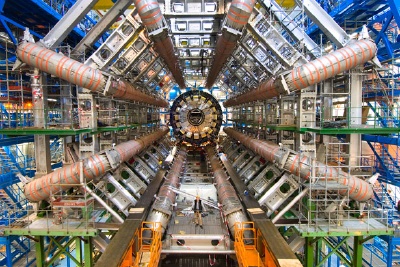I wouldn’t say watched it… But I did manage to glimpse some of tonight’s Oscars. I guess I don’t watch them often, as I thought that Billy Crystal hosted the show every year, but the new Daily Show guy was hosting, .
Regardless, this may have been the first year that I thought that no crap had been picked for Best Picture nominees. All of the picks this year were actually movies that I would want to see. And it was fun to see the success of No Country For Old Men and There Will Be Blood. But in unrelated news…

gaze into the fist of dread
I’ve been thinking lately about The Quiet Earth. A great film from New Zealand that has been terribly overlooked in the last 20 years. From what I can remember, in 1986ish it had a brief “arthouse” release in the states and then a little vhs printing and that was it, until its US DVD release a year and a half ago. A great and quiet film about a science experiment gone terribly wrong, in that it removes nearly every person on earth. It is an interesting and compelling film about what one might do if they were the last person on earth, and how three really can be a crowd. But it also seems (at least to a paranoid soul like myself) to be a meditation on the dangers of science. Well, on the dangers inherent in utilizing our existing technology to the fullest. As Einstein once said, “It has become appallingly obvious that our technology has exceeded our humanity”.
I think about it whenever I hear about the idea of setting off powerful bombs underground on fault lines, in the hopes of using those as a preemptive measure against potential major earthquakes, but I also thought about it this week when I read this article at National Geographic about the search for the ridiculously (and inaccurately) named “god particle”, At The Heart Of All Matter. Obviously, I don’t think that anything terrible will happen, but still, reading paragraphs like this:
At four locations the beams will converge, sending the particles crashing into each other at nearly the speed of light. If all goes right, matter will be transformed by the violent collisions into wads of energy, which will in turn condense back into various intriguing types of particles, some of them never seen before. That’s the essence of experimental particle physics: You smash stuff together and see what other stuff comes out.
Does make me wonder if research may take that one final wrong step one of these days.
4 Responses to “trying to walk a straight line, on sour mash and cheap wine…”

There’s a big article about that big ol’ contraption in this month’s Natl. Geo.
In the words of Nelson Muntz, after he, Bart, Milhouse and Martin have just melted a toy train by putting it on an electrified race-car track “Now let’s throw some crud on it!”
The odds of the LHC causing a quantum fluctuation to result in the birth of another universe is about 1 in 10^100. Also, ultra high energy cosmic rays hit the Earth’s atmosphere now and then with energies far above what the LHC can produce. Nothing’s happened to us.
I have a well developed technophobia…
And a strong (and at times, sinking) feeling that there is a lot to how the universe works that people aren’t even close to understanding. Of course, I would easily prefer that they use Collider’s to try and figure things out then just blindly attribute everything to magical beings in the sky.